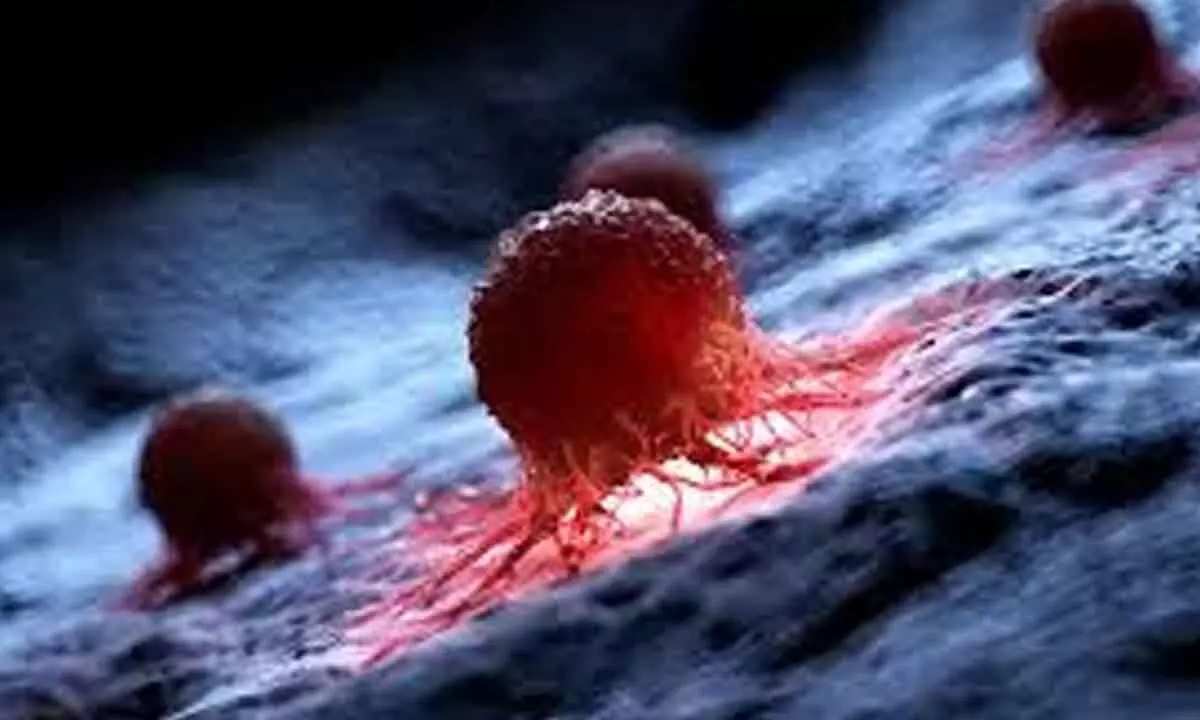Early-onset cancer causes a mystery

Nearly 80% increase in no. of under-50s being diagnosed with cancer globally
The number of deaths due to early-onset cancers also increased from 1990 to 2019 – although less quickly than the rate of diagnosis, with 1.06 million deaths worldwide in 2019, an increase of 28%. Women were disproportionately affected in terms of death and poor health from early-onset cancer in low- and middle-income countries. The study also shows that while the highest number of early-onset cancer cases were in developed countries such as western Europe, North America and Australasia, many cases were also seen in low- and middle-income countries
Cancer is often thought of as a disease that mostly affects older people. But worrying new research shows that cancer in younger adults is a growing problem. The study found there’s been a nearly 80% increase in the number of under-50s being diagnosed with cancer globally in the last three decades. Also of concern are the types of cancers being seen in younger adults – with this latest study and previous research showing that cancers thought of as typical of older age groups are now increasingly being diagnosed in younger people. These include bowel cancer, stomach cancer, breast cancer, uterine cancer and pancreatic cancer. This is worrying because some of these cancers – particularly pancreatic and stomach cancer – have low survival rates, due to the fact they’re often diagnosed at a late stage. Research has also shown that bowel cancer tends to be diagnosed at a more advanced stage in young people compared with older adults.
While it’s clear from this latest study that cancer is becoming more common in those under 50, experts still aren’t entirely sure what’s causing this rise. The study investigated cancer cases in people under the age of 50 (termed “early-onset cancer”) from 204 countries and regions. The researchers found that in 2019, there were 3.26 million cases of early-onset cancer diagnosed worldwide – a 79% increase since 1990. The authors also predicted that by 2030, the number of under-50s diagnosed with cancer would increase by a further 31%. Breast cancer was the most common early-onset cancer in 2019, but incidences of prostate and throat cancers increased at the fastest rate since 1990. Liver cancer decreased the fastest over the same time period.
The number of deaths due to early-onset cancers also increased from 1990 to 2019 – although less quickly than the rate of diagnosis, with 1.06 million deaths worldwide in 2019, an increase of 28%. Women were disproportionately affected in terms of death and poor health from early-onset cancer in low- and middle-income countries. The study also shows that while the highest number of early-onset cancer cases were in developed countries such as western Europe, North America and Australasia, many cases were also seen in low- and middle-income countries. Death rates were also higher in low- and middle-income countries.
The main limitation of this paper is the variability of the data collected by different countries, making it difficult to measure its completeness. Nonetheless, it is still useful in getting a picture of global health.
Unknown causes
There’s no single explanation for why cancers are rising in under-50s. Some cancers in younger people happen as a result of a genetic condition – but these only account for a small number of cases (around 20%). Lifestyle factors such as the foods we eat, whether we drink alcohol or smoke, and being overweight are all linked to an increased risk of many types of cancer. Research indicates that these factors may be contributing to a rise in early-onset colorectal cancer, for example. Whether this is true for other types of early-onset cancer remains unknown. Some people affected by early-onset cancers may live healthy lifestyles. This suggests there are probably other reasons for the increase that have not yet been discovered. It’s clear from this research that the landscape of cancer is changing. While the incidence of early-onset cancers is increasing, cancer in this age group is still much less common than for those over-50. Early-onset cancers account for only around a tenth of new cases in the UK. But though the numbers are still relatively low, this doesn’t mean the trend we’re seeing isn’t of concern. It will be crucial now to ensure there’s greater awareness of early-onset cancers. Most younger people, and even healthcare professionals, don’t necessarily put cancer at the top of the list when symptoms develop. It’s important for people to see their GP if they notice any new symptoms, as detecting cancer at an early stage leads to a better prognosis.
Urgent research into early-onset cancer is also needed at a national and international level. The underlying causes are probably different depending on a person’s sex, ethnicity and where they live. On a personal level, there are many things you can do to reduce your risk of developing cancer. Following a healthy lifestyle remains important. This includes eating a healthy diet, stopping smoking, exercising regularly, reducing your alcohol intake, being safe in the sun and maintaining a healthy weight. If something doesn’t feel right with your body or you experience any new symptoms, it’s important to see a doctor as soon as you can.
(The Conversation; Writer works at Queen’s University Belfast, Northern Ireland, UK)








